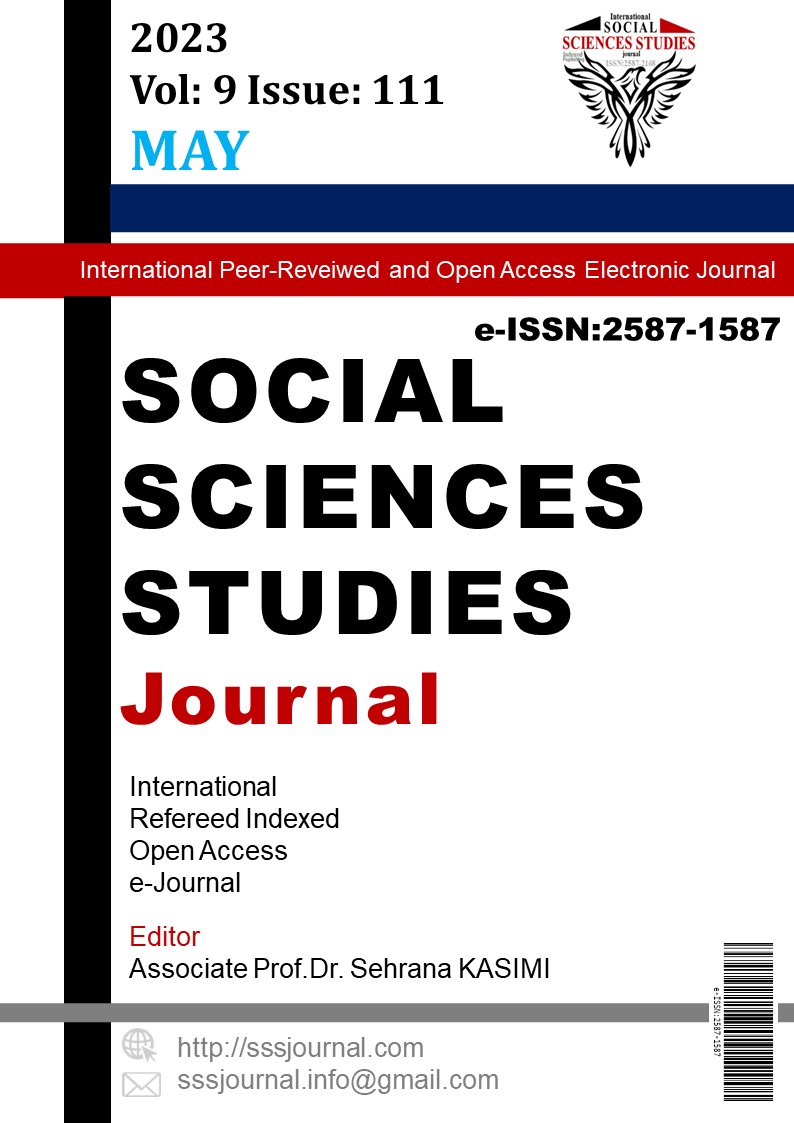Sınıf Yönetiminde İstenmeyen Öğrenci Davranışlarını Önlemeye Yönelik Öğretmen Davranışlarının İncelenmesi
Author :
Abstract
Sınıf yönetiminde istenmeyen öğrenci davranışlarını önlemeye yönelik öğretmen davranışlarına ilişkin öğretmenlerin görüşlerini ortaya koymak amacıyla yürütülen bu çalışma nitel araştırma yöntemlerinden olgubilim (fenomenoloji) modeline göre tasarlanmıştır. Çalışmanın örneklemini 2021-2022 eğitim-öğretim yılı bahar döneminde Mersin ili Tarsus ilçe merkezinde görev yapan ve okulöncesi, ilkokul, ortaokul ve lise kademelerinde çalışan 20 (yirmi) öğretmen oluşturmaktadır. Veri toplama aracı olarak yarı yapılandırılmış görüşme formu kullanılmış ve veriler betimsel analiz tekniği kullanılarak analiz edilmiştir. Yapılan analizler sonucunda öğretmenlere göre öğrencilerin çoğunlukla “derste konuşma, argo ifade kullanma, fiziki zarar verme, arkadaşlarını şikayet etme” gibi istenmeyen davranışlarda bulundukları; öğretmenlere göre genellikle “aile, sosyal çevre, akran etkisi, olumsuz rol model tercihi,” gibi nedenlerden dolayı istenmeyen davranışlarda bulundukları; öğretmenlerin istenmeyen öğrenci davranışlarını önlemeye yönelik çoğunlukla “aile ile iş bilirliği, bireysel görüşme veya konuşma, uyarma, göz teması kurma” gibi yöntemlere başvurduğu; öğretmenlerin istenmeyen öğrenci davranışlarına karşı çoğunlukla “sohbet etme veya konuşma, sakin davranma, uyarı yapma, anlayış gösterme” gibi davranışlar sergiledikleri; öğrencilerin göstermiş olduğu olumsuz davranışların engellenmesinde kullanılan yöntemlerin başarılı ve etkili olduğu; öğretmenlerin istenmeyen öğrenci davranışlarına karşı hissettikleri duyguların genellikle “üzüntü hissetme, moral bozukluğu yaşama, sinirlenme” şeklinde olduğu sonucuna ulaşılmıştır.
Keywords
Abstract
This study, which was carried out to reveal the opinions of teachers about teacher behaviors to prevent undesirable student behaviors in classroom management, was designed according to the phenomenology model, one of the qualitative research methods. The sample of the study consists of 20 (twenty) teachers working in the town center of Tarsus in Mersin in the spring term of the 2021-2022 academic year and working at the preschool, primary, secondary and high school levels. A semi-structured interview form was used as a data collection tool and the data were analyzed using descriptive analysis technique. As a result of the analyzes made, according to the teachers, students mostly engage in undesirable behaviors such as "speaking in the classroom, using slang expressions, causing physical harm, complaining about their friends"; According to the teachers, they generally behaved undesirably due to reasons such as “family, social environment, peer influence, negative role model preference”; teachers mostly resort to methods such as "cooperation with the family, individual interview or conversation, warning, eye contact" to prevent undesirable student behaviors; teachers often exhibit behaviors such as "chatting or speaking, acting calmly, warning, showing understanding" against undesirable student behaviors; that the methods used to prevent the negative behaviors of the students are successful and effective; It has been concluded that the feelings that teachers feel towards undesired student behaviors are generally in the form of "feeling sad, depressed, angry".





